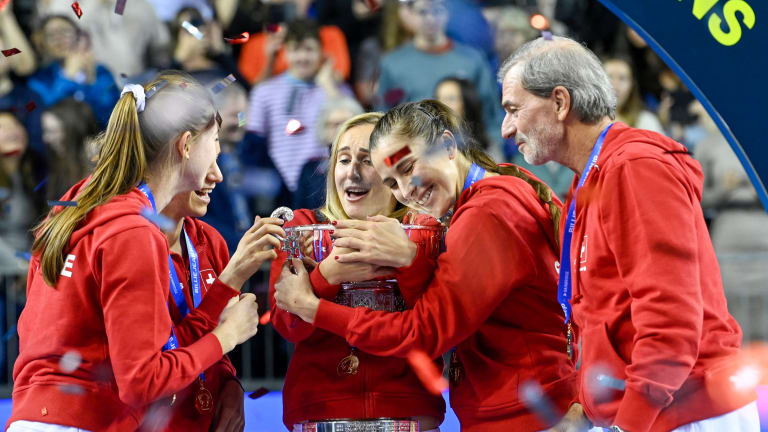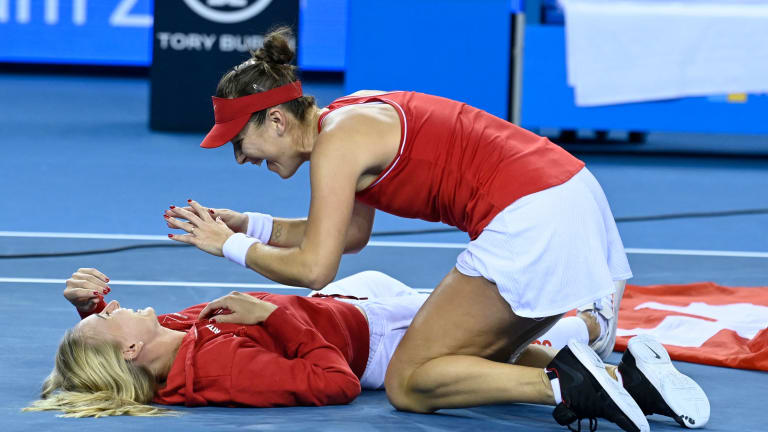Billie Jean King Cup
Belinda Bencic, Jil Teichmann clinch Switzerland's first Billie Jean King Cup title
By Nov 13, 2022Billie Jean King Cup
Lindsay Davenport signs two-year contract renewal as U.S Billie Jean King Cup captain
By Dec 02, 2025Billie Jean King Cup
Eva Lys talks career breakthrough, stalking threats at Billie Jean King Cup Play-Offs
By Nov 14, 2025Billie Jean King Cup
Eva Lys set to lead Germany in Billie Jean King Cup Play-Offs
By Nov 13, 2025Billie Jean King Cup
Alizé Cornet selected as next captain of the French Billie Jean King Cup team
By Nov 03, 2025Billie Jean King Cup
Italy retains the Billie Jean King Cup with Jasmine Paolini's win over Jessica Pegula
By Sep 21, 2025Billie Jean King Cup
Emma Navarro and Jessica Pegula both rally to lead U.S. to Billie Jean King Cup Finals
By Sep 20, 2025Billie Jean King Cup
Italy back in Billie Jean King Cup final after comeback against Ukraine
By Sep 19, 2025Billie Jean King Cup
Emma Navarro saves two match points in win, helping United States reach Billie Jean King Cup semifinals
By Sep 18, 2025Billie Jean King Cup
Japan beats Canada, U.S. tops Slovakia to qualify for Billie Jean King Cup Finals
By Apr 13, 2025Belinda Bencic, Jil Teichmann clinch Switzerland's first Billie Jean King Cup title
The Swiss squad had previously reached two finals—most recently losing last year—before Teichmann and Olympic gold medalist Bencic took the reigns in Glasgow.
Published Nov 13, 2022
Advertising
Advertising

The Swiss squad had previously reached two finals, most recently losing last year the Russian Tennis Federation.
© AFP via Getty Images
Advertising
Advertising

“I feel amazing right now,” said Teichmann (left). “It was a great battle... Today’s a big day for us.”
© AFP via Getty Images